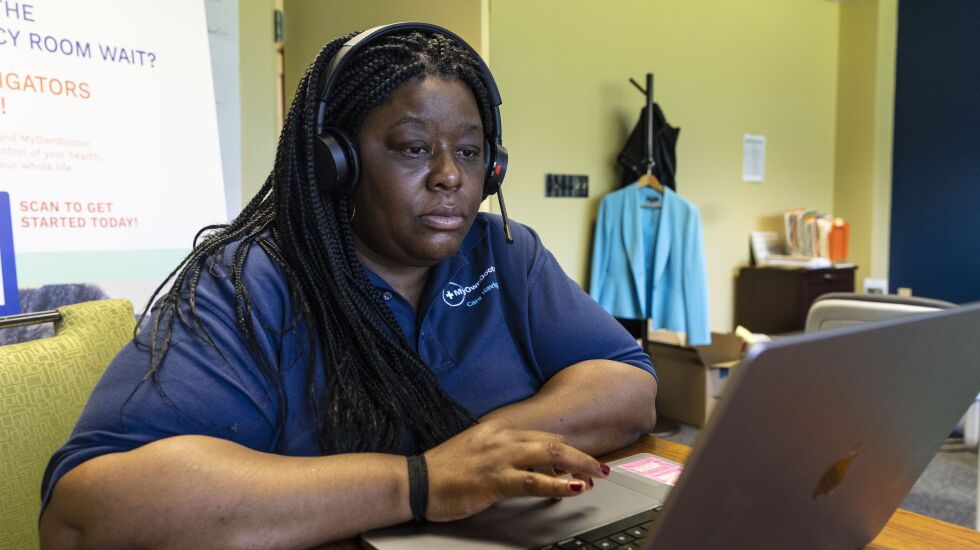
When Gov. J.B. Pritzker signed into law a permanent expansion of telehealth services, he codified the requirement that insurance carriers provide coverage for virtual health care, particularly those supporting mental health and substance use treatment services.
This remains one of the most impactful pieces of legislation stemming from the COVID-19 pandemic, and its consequences can be felt across Illinois’ most vulnerable communities, where residents experience a disproportionate amount of trauma, addiction and mental health challenges.
The availability of telehealth is a bright spot for families burdened by a lack of access to health care. Virtual services remove geographical and logistical barriers, helping individuals in historically underserved, rural or low-income communities get the care they need. It also allows us to maximize our mental health workforce, pushing back against a shortage of providers that grows wider each year.
SEND LETTERS TO: letters@suntimes.com. We want to hear from our readers. To be considered for publication, letters must include your full name, your neighborhood or hometown and a phone number for verification purposes. Letters should be a maximum of approximately 375 words.
Telehealth represents just one way that technology and innovation have enhanced care and strengthened our communities. And it’s a perfect example of why it’s important to ensure technology companies’ ability to innovate is not lost in overly broad regulatory changes.
Current policies circulating in Congress attempt to promote competition in the technology industry. While competition is important to a healthy marketplace, the bills include language and provisions that are broad and open to interpretation, and thus risk undercutting important workflow processes that power modern telehealth technology.
For example, my electronic medical record provider offers integrated telehealth for a small add-on fee. If that integration were to be deemed non-competitive, telehealth sessions would instantly become more complex and challenging for me and my patients. Or if Google referencing its own tools could be viewed as anti-competitive, potential patients may not be able to easily access reviews of my practice when looking it up on Google Maps or search.
These are examples of simple and valuable tools that power small practices — tools we would immediately miss if they were deemed non-competitive. Pursuing blanket policies without a deeper understanding of consequences is counterproductive. We can’t afford to create competition at the expense of mental health providers and their patients.
Aaron Weiner, Ph.D., licensed clinical psychologist and addiction specialist, Lake Forest
Elected leaders are causing harm with their stand on Middle East conflict
Word choices have consequences. Both President Joe Biden and Ald. Debra Silverstein (50th) claimed to stand with Israel, with Silverstein introducing a resolution in the City Council to that effect. These words reduced the catastrophic act to a simplistic argument between good and evil and contributed to a climate of hate and anger. One individual stabbed a 6-year-old boy.
Rather than choosing sides and unconditionally supporting one people over another, our elected officials should stand with a universal principle of reason over violence.
Using the term 100% “behind Israel” is using the language of extremists, zealots and the radicals we hope to defeat.
To quote noted intellectual Richard Hofstadter, 100 percenters “tolerate no ambiguity, equivocation, reservation, or criticism” while submitting to a willful blindness that ignores the reality expressed through the grievances and suffering of the Palestinian people. This is not an example of moral equivalency, but of power imbalance or fairness parity. It is possible to condemn an act without condemning a people. I am reconsidering voting again for either candidate whose judgment I no longer trust.
My admiration and respect are extended to Ald. Rossana Rodriguez-Sanchez (33rd) and Ald. Carlos Ramirez-Rosa (35th) for having the courage to value principle over partiality.
Roberta Motanky, Rogers Park







